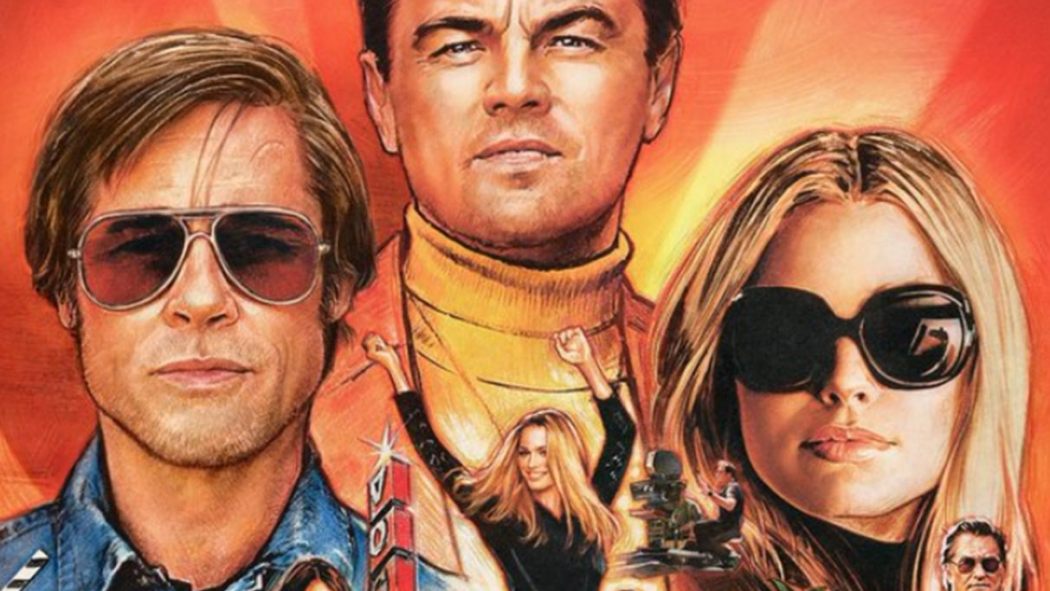In part 1 of this piece, I highlighted one of Tarantino’s best and most overlooked films, Jackie Brown, attempting to draw a line between it and his new movie, Once Upon a Time…in Hollywood. In this second entry, I’ll argue that while Once Upon a Time is the work of a more mature director it doesn’t quite stack up to his best. Before I do that, however, I have to address the elephant in the room, namely how do we even view Tarantino after the #MeToo/Weinstein moment?
It’s not 1994 anymore. That’s for sure.
The ground beneath Quentin Tarantino has shifted. Movie stars, either the ones whose careers he’d like to rejuvenate or the ones already at the top of their game, don’t put butts in seats unless those seats are our couches at home. The movie star is dead; love live the age of the IP. As such, Hollywood has no patience for auteurs anymore. Most of Tarantino’s peers from the 90s have moved on to other careers (Robert Rodriguez and Spike Jonze each run their own TV network! Kevin Smith is more influencer than director these days!) or switched to streaming. Even Tarantino has diversified his portfolio, buying, renovating, and programming the Los Angeles revival theater The New Beverly.
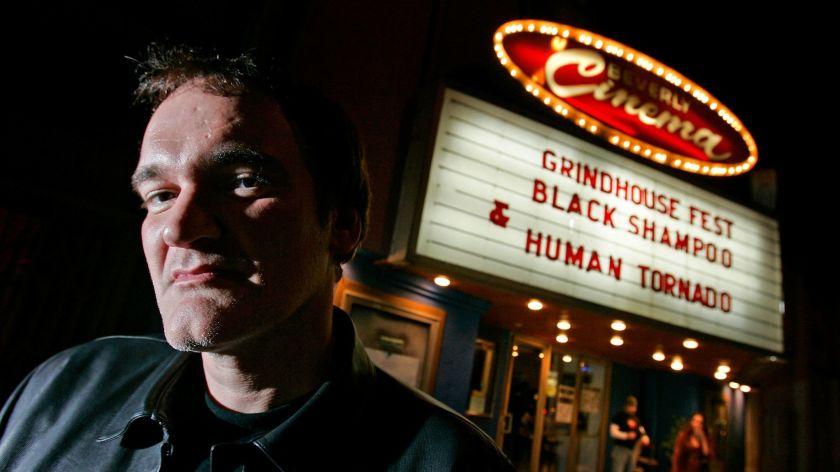
But the guy who started in a video store doesn’t want to end his career to exclusively focus on programming festivals for his movie theater. Not yet, at least. He still has some stories left to tell, and after Inglourious and Django grossed nearly $800 million worldwide combined, it was thought Tarantino was among the few directors with enough brand recognition left to open their own movie and turn a profit. Then The Hateful Eight flopped and The Weinstein Co. folded. He still managed to leverage that into securing the biggest budget of his career for Once Upon a Time, but the chances of it succeeding, even with Leonardo DiCaprio and Brad Pitt in tow, are slim.
There’s no Harvey Weinstein around anymore
Moreover, the culture is changing faster that any point in recent memory. Former Tarantino backer/friend Harvey Weinstein has now been exposed as a sexual predator and general monster, and Tarantino’s complicity in not doing enough to stop him has forced him into the rare position of actually apologizing for something, not that everyone took his public contrition to be enough. The ever-present charges of misogyny against Tarantino came back on him in a back way in response to his treatment of Uma Therman on the set of Kill Bill and Diane Kruger on the set of Inglourious (the actresses have since defended him) as well as his on-screen punishment of Jennifer Jason Leigh in The Hateful Eight, playing a nasty piece of work who is treated as the movie’s literal punching bag.
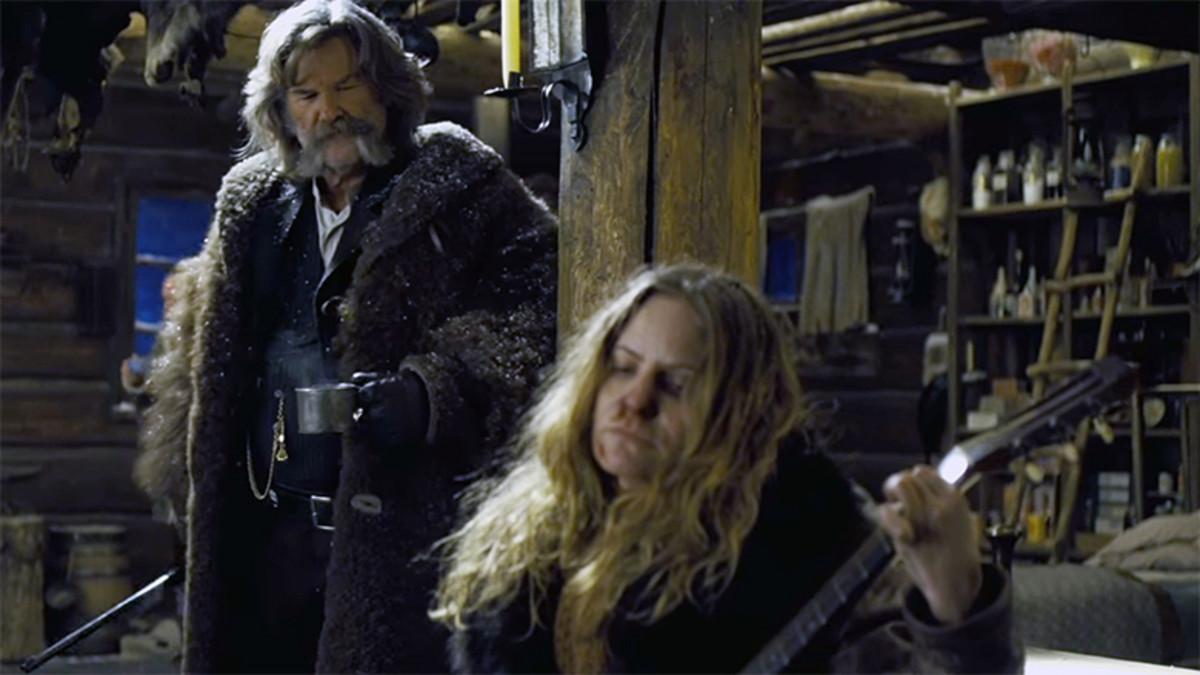
All of this is enough to make some viewers feel uneasy about seeing Tarantino’s new movie. The New York Post’s Sara Stewart, for one, thinks modern day Hollywood has no place for his brand of B-movie exploitation, “In a world where we have an increasing number of heroic females — especially in films written and directed by actual women — it may be game over for male auteurs who create supposedly strong women on-camera and denigrate them from behind it.” Individual mileage may vary.
He’s now older than Jackie Brown.
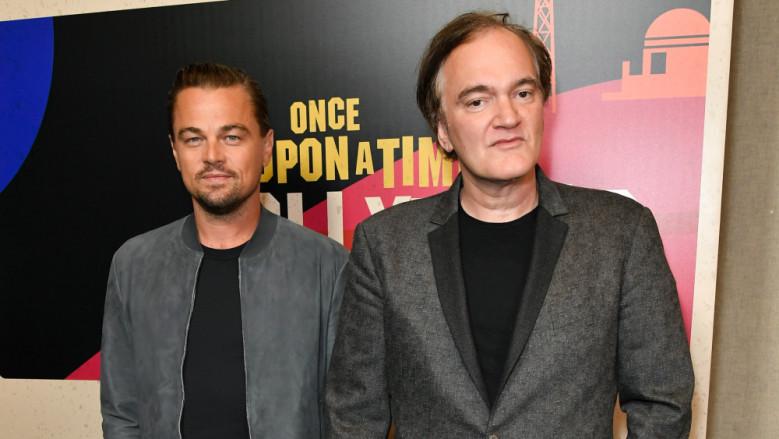
Today, the man is nearly 60. He’s now a fair deal older than Jackie Brown is in her movie, probably closer to Max Cherry’s age actually. He’s only now allowed himself to marry and think about having kids, explaining he put it off for so long because he didn’t want a family around to pull his attention away from making movies. Whatever he makes next will be his tenth and possibly final film since he’s rather arbitrarily decided to cap his filmography at 10. He’s finally in a place to not just intellectually but also emotionally understand what Elmore Leonard was writing about in Rum Punch, the novel he turned into Jackie Brown.
Back in ‘97 when Tarantino made Jackie Brown, he pulled off a pretty damn good impression of a director who understood the rich contours and desperation of middle age. With Once Upon a Time…in Hollywood, he’s again exploring those same themes but with more understanding. Jackie Brown was what he thought a movie like that should look like; Once Upon a Time is him realizing what it really feels like.
The Sharon Tate of It All
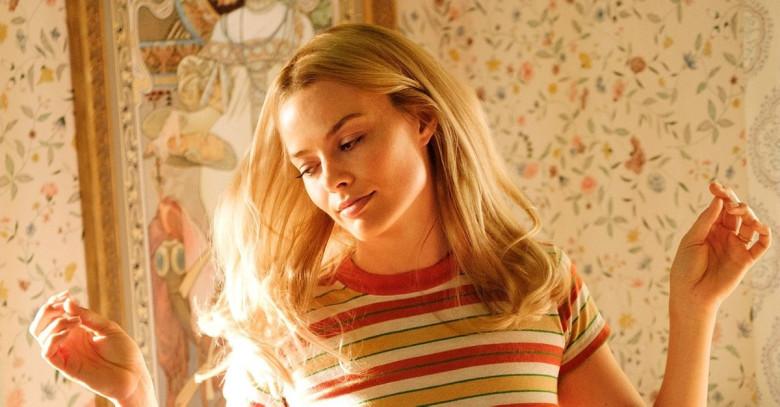
Which is why Margot Robbie’s version of Sharon Tate feels so removed from Once Upon a Time’s story. It’s harder for a 56-year-old to feel a rather immediate connection with a character with so few blemishes and nothing but limitless potential.
Seen only intermittently as she devotes her days to leisure/shopping and nights to partying, the only direction she sees her life going is up. An actress with a blossoming career and famous director for a husband, Tate’s name is on the marquee under Dean Martin’s for her latest picture, The Wrecking Crew. You can sense that her name will be up on the top of the marquee in no time.
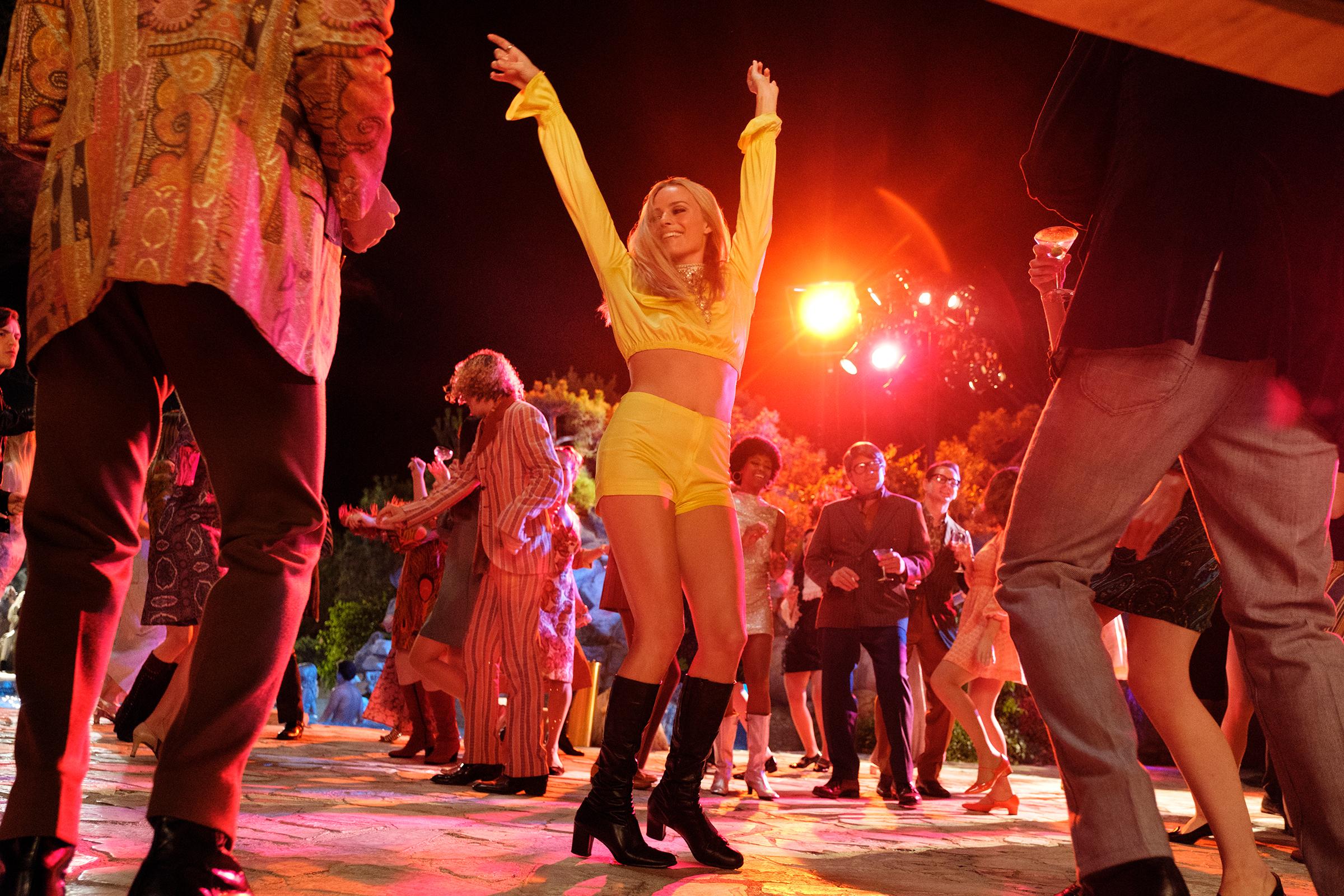
Tarantino, Robbie and others have devoted considerable energy during the press tour to paint this portrait of Tate as their salute to her and effort to remove her from a victimhood narrative. We think of her as the famous, pregnant girl killed by The Manson Family. Maybe after Once Upon a Time, we’ll think of her as a vibrant young woman who loved the sound of people laughing at her every Wrecking Crew pratfall, happily picked up hitchhikers and chatted them up with an attentive ear, and simply enjoyed the company of her friends.
However, Tate doesn’t feel particularly present in the story. She more feels like a vague projection of the post-Pulp Fiction Tarantino from 25 years ago when the world was his oyster. Once Upon a Time isn’t really the Sharon Tate redemption story, but it never really feels like it was meant to be, despite how they’ve tried to spin it.
The True Heart of the Story
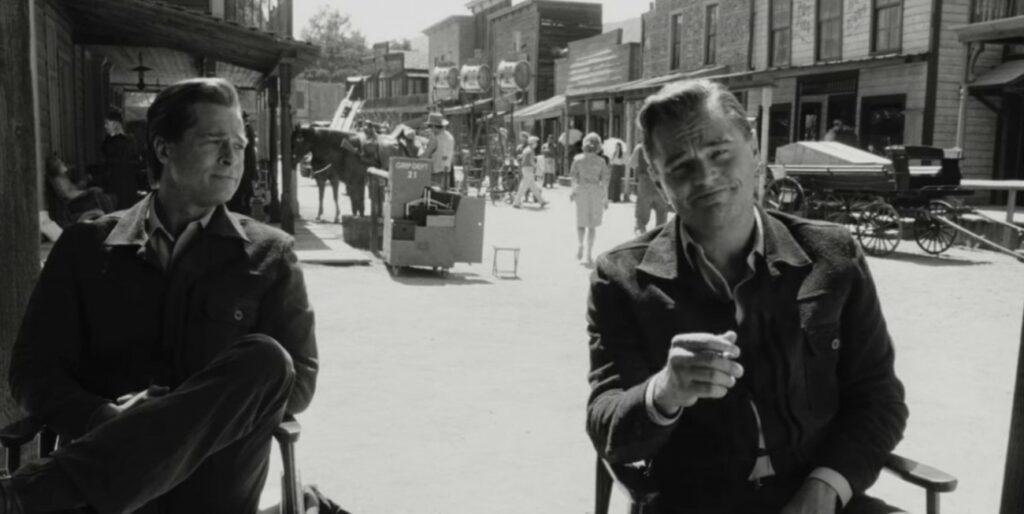
Tate’s fictional next-door neighbors in the story – washed up TV actor Rick Dalton (DiCaprio) and his longtime stuntman Cliff (Pitt) – and their dilemma over what to do with the rest of their lives is the more weighty portion of the film because it’s clearly closer to what Tarantino feels right now. The opening scene of the film, in fact, is them in their salad days, interviewed on the set a hit TV western called Bounty Law.
We quickly cut to nearly a decade later. It’s 1969. Dalton’s planned film career post-Bounty Law has flamed out and left him crawling back to TV to pick up guest star roles as the heavy on shows like F.B.I. If you start him up, he’ll rail against hippies as the most obvious symbol of a culture which is changing around him, usually to his great confusion. An agent (Al Pacino) wants him to fly to Italy to headline some spaghetti westerns, a genre he despises almost entirely sight unseen. Does Rick get over himself and give in to this new stage of his career, possibly viewing it as the start of a comeback? And how much longer can he afford to pay Cliff to not only double him but also work as his gofer and driver?
All of this turns into an excuse for DiCaprio to flex his comedic muscles as, what else, a rather neurotic actor, one of Hollywood’s favorite stock characters. DiCaprio rarely allows himself to be this funny, which makes his shaky-voiced performance a true delight. However, Pitt walks away with the whole thing, portraying someone so profoundly cool he once held his own in a fight with Bruce Lee after the man badmouthed Cassius Clay.
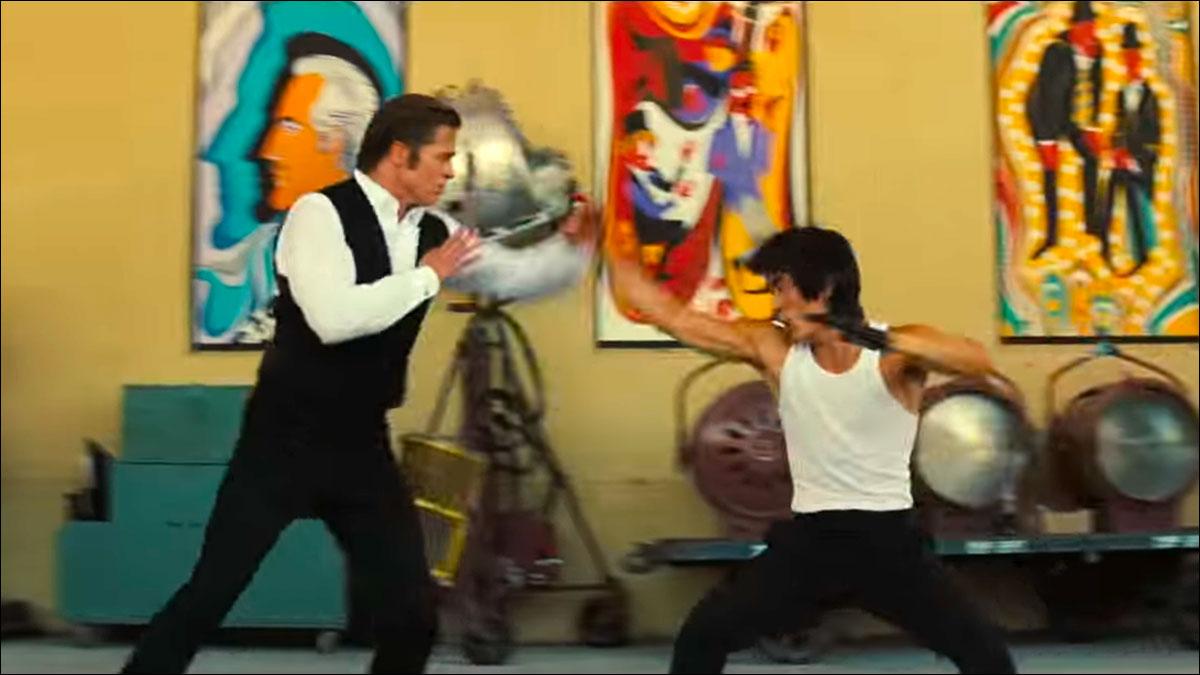
That particular standout sequence plays in flashback, one of the few sprinkled throughout Once Upon a Time, as characters occasionally think back to missed chances or crazy days on set.
For the more part, though, the story is strictly linear. Tarantino, the man who perfected the art of the jumbled story, abandons it here under the assumption that the only tension he really needs is our assumption about how it’s all going to end.
So, Does Sharon Tate Die in This Movie or Not?
If we all assume this either ends with the Manson family killing Sharon Tate and friends as per actual history or some revisionist, B-movie spin on it as per Basterds, then Once Upon a Time can get away with leisurely exploring a day or two in the life of the apparently doomed. History already provided the ticking clock; it’s up to Tarantino to decide what kind of explosion it provides when it goes off.
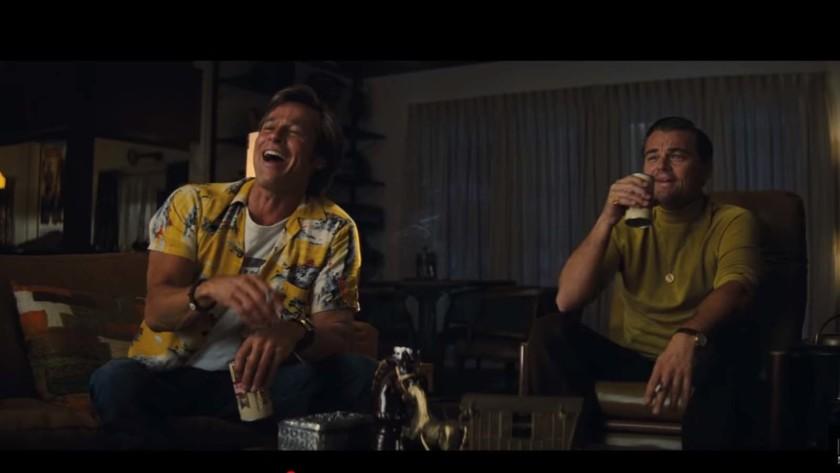
If we give in to the little game Tarantino’s playing with us, maybe we’ll simply enjoy the ride and delight in to the old-fashioned joy of looking up at the big screen and watching very famous movie stars do their thing. Moreover, maybe we’ll surrender ourselves to this film’s time machine trip back to 1969 LA, which has been recreated here right down to every last painstaking detail.
LA Ambiance
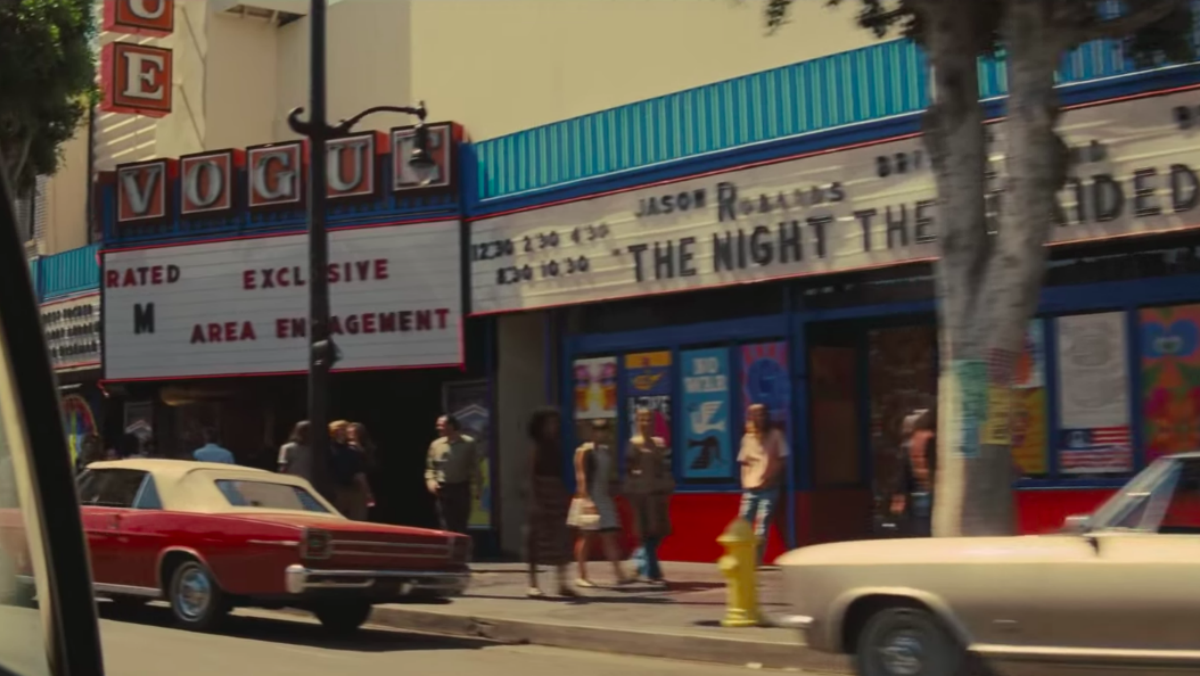
A Tennessee transplant who has called California his home since 1966, Tarantino is clearly overjoyed to escape back into the old haunts from his childhood. He trades out the wide vistas of his recent historical epics for loving close-ups of old movie marquees and flickering, neon restaurant signs like the El Coyote, which is where the real Sharon Tate had her last meal. However, he also imbues the film with a real first-hand knowledge of what it’s really like to live in the City of Angels, which means there are an inordinate number of scenes of people simply driving to work and back, traversing a complicated freeway system in the process.
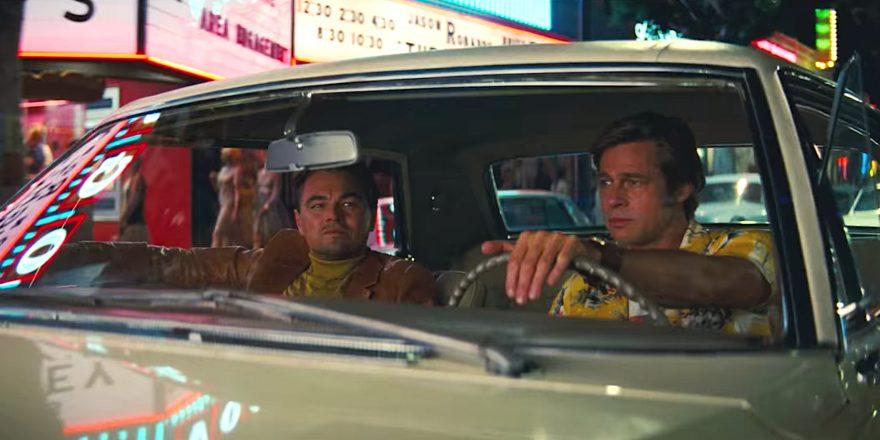
Almost always filmed as if we are in the back seat of the car, these scenes might test some viewer’s patience or leave them begging for a stricter editor, but if you’re into it, you’ll be looking out the windows just drinking in the ambience of a town which can so quickly alternate between bucolic, industrial, and even scary, such as the Spahn Movie Ranch which the Manson Family (led by Lena Dunham and a ridiculous number of cameos) rents from a blind old man (Bruce Dern). When do we finally settle on certain locations, Tarantino sometimes throws the story to the wind just to recreate entire stretches of a fictional western TV show Dalton is guesting on. (It seems as if Tarantino’s western itch hasn’t been completely scratched by Django and Hateful.)
The Tarantino Twist
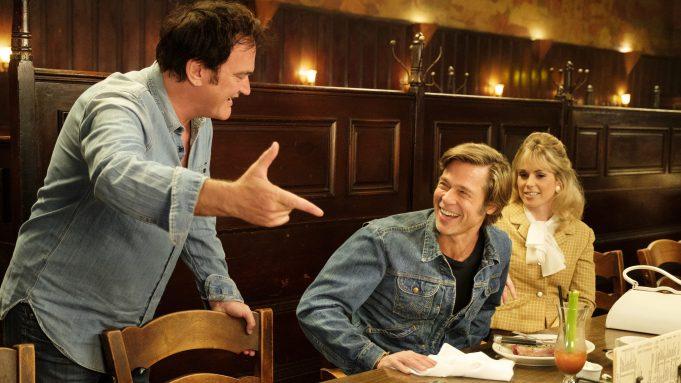
Yet, you’re still waiting for the patented Tarantino twist. His career is built on taking sideway approaches to the familiar, giving us a heist movie without the actual heist (Reservoir Dogs), an on-the-run-from-the-law story that suddenly and without any warning turns into a horror movie (From Dusk Till Dawn), and a WWII caper in which Hitler can die (Inglourious Basterds). What surprise does he have in store for us this time? After two plus hours of an actor possibly getting his groove back and a stuntman refinding his purpose, where is Once Upon a Time ultimately going to land?
It’s not just the old buildings, backlots, and 1969 vibe Tarantino’s recreating but also the idea that anyone’s life can change in an instant in a city like LA. That’s why he gave it the fairy tale-like title of Once Upon a Time. So, are we heading toward a Disney fairy tale ending or something closer to Grimms?
To say anymore would risk spoiling too much. However, I would argue that Once Upon a Time ultimately comes off as being stuck between an ode to the Hollywood that was and a deceptively personal story about a couple of characters at a crossroads. Rather than plunging deep into the latter story as he did with Jackie Brown, Tarantino couldn’t resist the nostalgia of recreating the Hollywood he grew up in, and as has been true of all his work ever since his longtime editor Sally Menke passed away in 2010 he goes on with all it for far too long.
In Conclusion
When most men reach a mid-life crisis moment, they buy a sports car. For Tarantino, he got Sony to give him $90m to recreate the Hollywood of his youth and to mix history and fiction to play-act his own dilemma over what to do with the rest of his life. The subtext is mostly text, the nostalgia dripping with surprising sincerity, and the inclusion of Sharon Tate has been overblown.
However, after nearly three decades of filling his character’s mouths with pop culture references, it’s astonishing to think that Tarantino has only just now fulfilled the Hollywood cliche of making a movie about people who work in Hollywood. Once Upon a Time is thus his contribution to the rich sub-genre of movies which pay homage to the dream factory and the eternal hope that while a new star is born every day everyone is due their own comeback.
Tarantino’s already had several of the latter – Kill Bill, Inglourious Basterds both being big comeback movies. Those hoping for another one of those from him after the divisive Hateful Eight will likely be disappointed. This isn’t an entirely new direction but instead a melding of prior hits, mixing the leisurely-paced character study of Jackie Brown with the period pieces touches of Inglourious and adding in a new dose of surprising compassion. He finally has enough years on him to emotionally understand the story of middle-aged desperation, and he couldn’t have picked a better cast.
Robbie does her best to radiate off the screen and DiCaprio and Pitt are often electrifying, turning a purposefully shapeless story into something you can’t stop looking at. Whether Tarantino the man truly deserves this kind of chance and self-indulgence after everything which went down with the Weinstein scandal, that’s for you and your ticket-buying power to decide. However, every new Tarantino movie is an event. With Once Upon a Time…in Hollywood, he’s made his new Jackie Brown. If history repeats itself, we won’t totally appreciate that until years from now.
What do you think? Let me know in the comments? And if you need to refresh your memory about what I said in Part 1, here’s the link.

